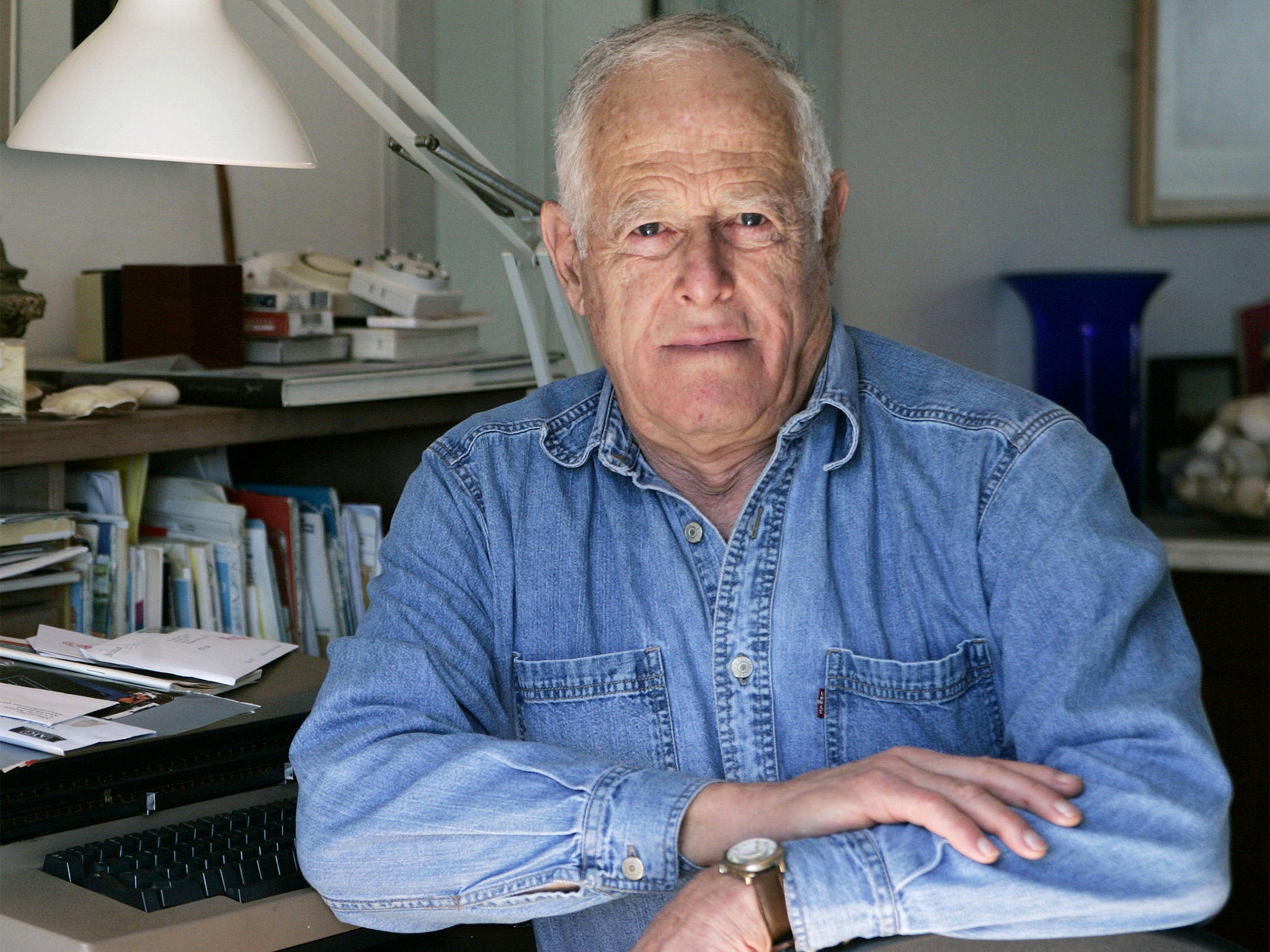James Salter: Writer whose cult following admired his linguistically exquisite explorations of transience, love and war
The prize-winning author didn't enjoy great commercial success but was highly admired by critics and peers

Your support helps us to tell the story
From reproductive rights to climate change to Big Tech, The Independent is on the ground when the story is developing. Whether it's investigating the financials of Elon Musk's pro-Trump PAC or producing our latest documentary, 'The A Word', which shines a light on the American women fighting for reproductive rights, we know how important it is to parse out the facts from the messaging.
At such a critical moment in US history, we need reporters on the ground. Your donation allows us to keep sending journalists to speak to both sides of the story.
The Independent is trusted by Americans across the entire political spectrum. And unlike many other quality news outlets, we choose not to lock Americans out of our reporting and analysis with paywalls. We believe quality journalism should be available to everyone, paid for by those who can afford it.
Your support makes all the difference.James Salter, who has died at the age of 90, was a prize-winning author acclaimed for his sophisticated, granular prose and sobering insights in books like Light Years and A Sport and a Pastime. An inveterate brooder about impermanence and mortality, he was the kind of writer whose language exhilarated readers even in the most distressing narratives.
Born in Manhattan, Salter didn't enjoy great commercial success but was highly admired by critics and such peers as Jhumpa Lahiri, Richard Ford and the late Peter Matthiessen, his friend and long-time neighbour on Long Island. He won the PEN/Faulkner prize for the 1988 collection Dusk and Other Stories and received two lifetime achievement honours for short story writing, the Rea Award and the PEN/Malamud prize.
Salter worked slowly, publishing only six novels and two story collections, along with his memoir and writings about food and travel. Few authors compare to him in economy and style. Lahiri is among those who thought he wrote some of the most perfect sentences in the English language. "Reading Salter taught me to boil down my writing to its essence," she wrote. "To insist upon the right words, and to remember that less is more. That great art can be wrought from quotidian life."
Salter was born James Horowitz but as a writer became James Salter, a change that "started an entirely new life," he recalled in 2005. He was a US Air Force pilot, swimming pool salesman and a film-maker, his credits including the short documentary Team Team Team, the story of the US Army American football squad preparing to play against the US naval academy, and the 1969 feature film Three which featured Charlotte Rampling as the object of attention of two college friends travelling round Europe.
The son of an estate agent who had graduated from West Point, Salter recalled in his 1997 memoir, Burning the Days, that he was an "obedient" child who was "close to my parents and in awe of my teachers." He enjoyed reading but only later became serious about it.
Like his father, he attended West Point, and he entered the Army Air Corps. He flew more than 100 missions during the Korean War. He found his calling as a writer while in the military, reading widely and working on stories. And he found his subject – not just war, which he wrote about in his first two novels, but the whole idea of transience, of bonds formed and then severed.
In 1957, the year he left the military, he made his authorial debut with The Hunters, a tough, straightforward novel in the Hemingway tradition. It was adapted into a 1958 film of the same name, starring Robert Mitchum. After a second novel, The Arm of Flesh, that so dissatisfied him he rewrote it years later as Cassada, Salter was living in Paris, reading exalted short novels such as William Faulkner's As I Lay Dying and crafting a story that would be "licentious but pure," a book "filled with images of an unchaste world more desirable than our own."
A Sport and a Pastime was a brief, poetic novel about a Yale drop-out and his French girlfriend. It was rejected by several publishers before George Plimpton agreed to release it in 1967 through The Paris Review.
"There's no question it was a breakthrough," Salter recalled. "Look, by that time I had read Camus, I had read Gide. I had read writers of greater elegance and greater intellectual sinew than you usually find in American writers." A Sport and a Pastime, like future Salter works, demonstrated the heights and the limits of sex and love. Paradise is gained, but only for a moment or a series of moments. Relationships break up, people move on.
HILLEL ITALIE
James Arnold Horowitz (James Salter), author: born New York 10 June 1925; twice married (five children); died Sag Harbor, New York 19 June 2015.
Join our commenting forum
Join thought-provoking conversations, follow other Independent readers and see their replies
Comments